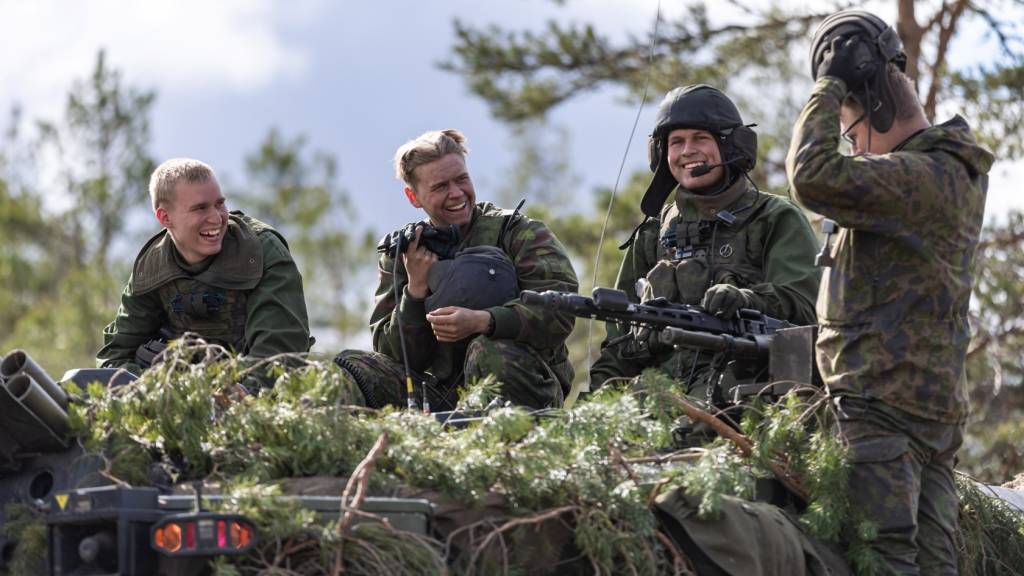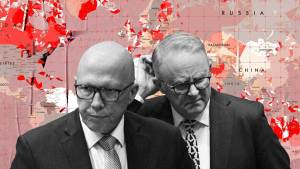Stockpiling, conscription and developing capabilities were all cited by experts in a recent article exploring what Australia could learn from Finland in terms of preparedness for war.
As well as these material aspects, the article also mentioned collective responsibility and spoke of national defence courses, but failed to touch upon a key cornerstone of Finnish society: high trust and low corruption.
Furthermore, it failed to explain that below the surface of the solemn Finns lies the secret to them being the happiest country in the world: a resilience and dry humour as a consequence of the war they experienced over 80 years ago. Using Finland as a role model is good and all, but in order to be able to “pick and choose” what works for Australia, we also have to understand the context of what has made Finland’s case successful.
Related Article Block Placeholder
Article ID: 1206740
Finnish society is highly equal. The country has one of the best education systems in the world, where teaching is a highly sought-after job, up there with subjects like medicine and law — you basically can’t teach unless you have a Master of Teaching. There are no private schools — everyone has access to the same resources, meaning no-one is left behind, even if there is plenty of talent. This kind of basis for society means there is not much space left for concepts such as elitism.
Of course, all nations have a layer of people in higher-level jobs; however, in Finland, even the president shops at the supermarket, just like your next-door neighbour. Similarly, you can see President Alexander Stubb treating all people he meets the same — he even makes videos about simple workouts with young Finnish conscripts to influence people to be healthy. He may be a professor, but the reason the Finns chose him is that he’s not elitist. If people in Finland perceive you as elitist, your chances of winning become minimal, and the candidates know that. You have to be relatable.
So when the ABC spoke about Finland having a national defence “elite” — a group of successful people from various industries who are trained to have key skills if there were a war — you have to be careful when approaching the topic from the outside.
Finnish society is not elitist. If you’ve ever watched the famous Finnish war movie The Unknown Soldier, you’d realise there is a reason the movie is called that. Adapted from a novel written by Väinö Linna, a Finnish Army soldier in Infantry Regiment 8 during the Continuation War, the movie is based on Viljam Pylkas, whom Linna fought alongside in the war. One of the most famous scenes depicts the soldiers’ refusal of the captain’s orders, and the captain dies as Russian tanks roll in. With this in mind, the below extract from the ABC news article fails to understand the bigger picture: without the social capital that Finland possesses, the “Finnish prepper mindset” becomes obsolete.
Locals say preparedness is in Finland’s DNA, a necessary skill to have in a country that shares a border with Russia. But experts credit the nation’s preparedness and self-reliance to a few key factors: collective responsibility; conscription and national defence courses; and massive stockpiles.
The locals are correct, it is in Finland’s DNA, and to understand why you have to comprehend the bigger picture.
In light of recent reports of Russia’s military build-up outside the border of Finland, the Finnish authorities are on high alert monitoring Russian activities. As part of Finland’s new role as a NATO member, strengthening the eastern border has been a key objective, and it just finished the first 35km of a planned 200km fence. If there has been an influx of volunteers to fight in Ukraine, one can only imagine what it would be like if Finland were to be attacked.
Former Finnish president Sauli Niinistö is correct in stating that conscription in Finland is not something young men (and women) feel is an obligation, but more an honour that Finns want to do as part of their nationhood.
Related Article Block Placeholder
Article ID: 1203072
In fact, such a calling is this honour that people from all around the world who have Finnish heritage come to take part in military conscription.
Finnish military service is renowned for testing the conscripts’ resilience, almost like a measurement of their ‘sisu’: if they can do this, they can do anything. I will never forget standing in -40 degrees watching my brother swear his military oath. The solidarity and camaraderie developed in the military is lifelong — my dad, uncle and brother still talk about their time as conscripts.
The other phenomenon that distinguishes the Finnish ‘prepper mindset’ is humour. This was a key part of the Finnish mentality during the hardship experienced, and acted as a glue to keep the collective sisu mindset going.
One of the most famous lines from The Unknown Soldier is said by a Finnish soldier in the trenches, responding to the Russian soldiers telling the Finns to surrender and come and get some bread: “You come and get some butter for your bread!”
What can Australia learn from the Finnish way of life?
We want to hear from you. Write to us at letters@crikey.com.au to be published in Crikey. Please include your full name. We reserve the right to edit for length and clarity.


